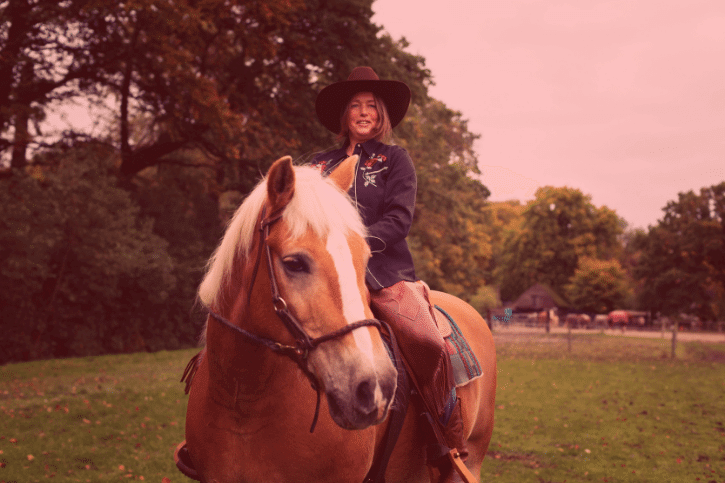Do Horses Have Periods?
Knowing your horse’s mood and behavior is a really important part of keeping horses.
One of the most important things is about how and when you’re letting males and females interact.
For that question, another important point is to understand a mare’s heat cycle.
I had been wondering this myself recently, as I’d just gotten my first male horse after only having females.
I knew that female horses had some sort of cycle that affected their behavior, but now I needed to know the exact nature of it.
So, do horses have periods?
Horses do not have periods in the same way humans do. Whereas humans go through a menstrual cycle each month once they reach puberty, horses go through an estrous cycle known as heat. This occurs once a year, early in spring, usually lasting 19-22 days.
So horses do have a ‘period’, in the sense of a period of time during which they are sexually available.
However, their period is very different from ours.
Horses do not bleed during this period.
In fact, only humans and close relatives of humans, like chimpanzees, experience this bleeding.
Let’s look at the question in more detail.
Do horses have periods and bleed?
So, to reiterate, horses’ periods are not the same as ours.
They are much less frequent, occurring only once a year, and they do not involve any bleeding.
This is what we mean specifically by the term ‘menstruation’.
Overt menstruation is bleeding from the uterus through the vagina.
This type of period is found primarily in humans and our close relatives.
It is also common in many simians, and beyond primates, it only occurs in bats, elephant shrews and the spiny mouse.
So, whereas humans go through a menstrual cycle, horses go through an estrous cycle.
This simply means the period during which she can become pregnant.
It is more commonly known as being ‘in heat’, and the same term is used for many animals like dogs and cats.
This typically lasts 19 to 22 days and occurs in early spring, the best possible time to raise a foal.
If they gave birth in winter or at the end of summer, the foal would have harsh conditions to weather very early on.
In any case, horses will never bleed during their heat cycle, as one would while menstruating, and it will only occur once in the year—you should always assume in early spring.
Do all horses have periods?
Speaking in general terms, all female horses should be able to go through a heat cycle.
Of course, there are particular health reasons why some horses will not, but a healthy female horse will go through a heat cycle at some point in the year.
Male horses, of course, do not have periods.
They are more or less always receptive to mating.
Of course, they are well able to recognize when a female is in heat, and otherwise they will not attempt to mate with her.
That said, male horses can still go through similar periods of accelerated sexual activity, during which their behavior can change.
They can become more aggressive and domineering. This is usually only a problem if you have more than one male.
How long is a horse period?
So, for most of the year, a female horse cannot get pregnant.
This is called the anestrus period, which is really important since horses do not want to get pregnant at the wrong time of the year.
For a mare, giving birth to a foal in winter would be bad for her and the foal.
Her estrus period, then, during which she can get pregnant, lasts about three weeks.
Give or take a couple of days—as I said, more precisely, it is somewhere from 19-22 days.
During this time, the horse is receptive to becoming pregnant.
If the horse mates and successfully conceives during this time, her heat will begin to dissipate and she will return to somewhat normal regardless of when the cycle started.
How to tell if your horse is in heat?
There are many simple signs to look out for.
One of them is tail raising.
This is to signal to the male that she is ready for him.
If she is urinating very frequently this too can be a sign.
Squealing, overt signs of aggression, unpredictable behavior in general, all of these things can indicate the horse is in season.
Horse periods are very different from our own, then.
The most significant difference is the regularity; horses have a much longer period of gestation as a fetus, so it is understandable that these ovulation periods are much shorter.
Being able to identify when your horse is in heat can be quite important, as it is important to note the changes that will occur in her behavior. If you keep this in mind, you won’t have a problem.
